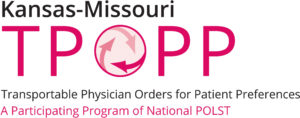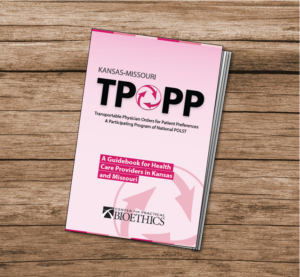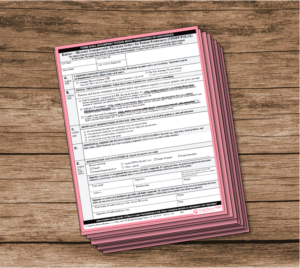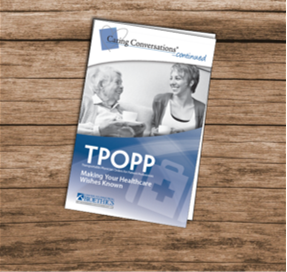Transportable Physician Orders for Patient Preferences (TPOPP/POLST)
Transportable Physician Orders for
Patient Preferences (TPOPP/POLST)

What is TPOPP/POLST?
The TPOPP/POLST initiative is designed to improve quality of care for those living with serious illness and/or frailty by translating patient goals and preferences into medical orders. This applies to patients with advanced or serious illness in Kansas and Missouri regardless of whether the patient is in a hospital setting, skilled nursing facility or living independently in their own community. TPOPP/POLST establishes communication between the patient or recognized decision maker (e.g., the healthcare Agent, proxy, or other designated decision-maker) and their healthcare team and translates patient preferences into a medical order.


POLST is a process and a form. POLST has different names in different states. At the national level, it is simply called POLST: Portable Medical Orders, or POLST for short. Portable means that the order is valid outside the clinic or doctor’s office, similar to a drug prescription.
POLST is many things, including:
- A process. Part of advance care planning, which helps you live the best life possible.
- Conversation. A good talk with your provider about your medical condition, treatment options, and what you want.
- A medical order form that travels with you (called a POLST form).
National POLST is a non-profit organization that organizes the efforts to standardize the POLST process, POLST form and education throughout the U.S., since POLST varies from state to state. Learn more about the history of POLST and National POLST.
TPOPP/POLST Training, Guidebook, and Form
TPOPP for Medical Professionals
To implement the TPOPP form at your organization, please complete the training and read the guidebook to use the form.
Our Programs
Make An Impact
Every dollar you give helps, providers, clinicians, patients and families
decide what to do when it’s hard to agree about the “right” thing to do.












